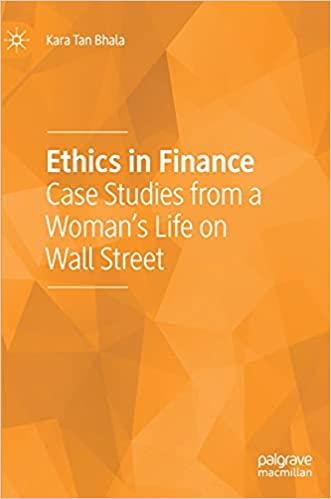Question
1. Which one of the following statements about the time value of money is correct assuming the interest rate is positive? (1 mark) A. $100
1. Which one of the following statements about the time value of money is correct assuming the interest rate is positive? (1 mark)
A. $100 today is worth less than $100 in the future because the present value is always smaller than the future value.
B. $100 today is worth more than $100 in the past because the future value is always greater than the present value.
C. $100 today is always worth less than $200 in 7 years.
D. To compare $100 today to $200 in 5 years, we can find the future value of $100 in 5 years and compare that value to $200.
2. Which one of the following statements about the bond interest rate risk is correct? (1 mark)
A. Long-term bonds usually have a lower interest rate risk than short-term bonds.
B. When you expect the market interest rate to fall, you should consider purchasing long-term zero-coupon bonds.
C. Zero-coupon bonds usually have a lower interest rate risk compared to high coupon bonds.
D. When the market interest rate rises, the price of bonds will decrease because coupon payments will decrease.
3. Which of the following is not an item of the IPO costs?
A. Underwriting spread
B. Under-pricing
C. Legal fees and ASIC registration fees
D. Over-pricing
4. Which of the following is most likely to happen in a market with semi-strong efficiency? (1 mark)
A. Bob made a big gain by purchasing company As shares. He started purchasing the shares after he read the news about company A on Sydney Morning Herald. B. Mia overheard that her company is planning to take over another business. She acted on the information and made a big gain.
C. John studied the past price pattern of a share and made a big gain by predicting the future price pattern of this share.
D. The board members were having a private meeting about a proposed merger. The companys share price changes significantly once all members agree to proceed with the merger.
5. Which one of the following statements is NOT correct? (1 mark)
A. It is more difficult to predict the future cash flow of an ordinary share in comparison to a bond.
B. The dividend payments of an ordinary share form an annuity.
C. It is harder to observe the rate of return on ordinary shares compared to the yield to maturity of a bond.
D. Ordinary shares do not have a maturity date.
Step by Step Solution
There are 3 Steps involved in it
Step: 1

Get Instant Access to Expert-Tailored Solutions
See step-by-step solutions with expert insights and AI powered tools for academic success
Step: 2

Step: 3

Ace Your Homework with AI
Get the answers you need in no time with our AI-driven, step-by-step assistance
Get Started


